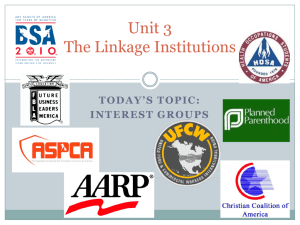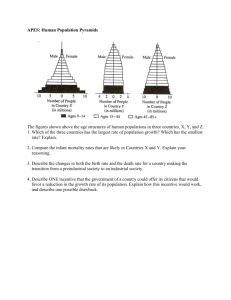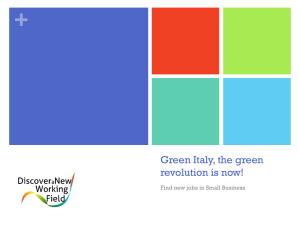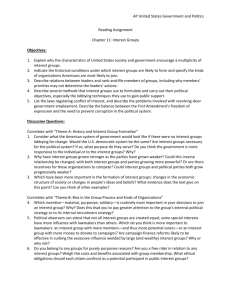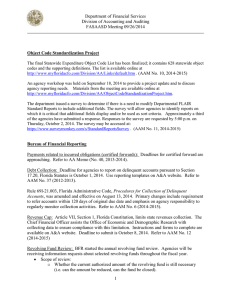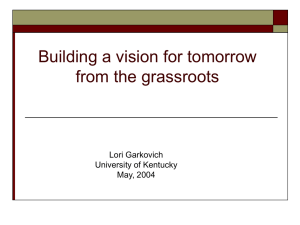Interest Groups
advertisement
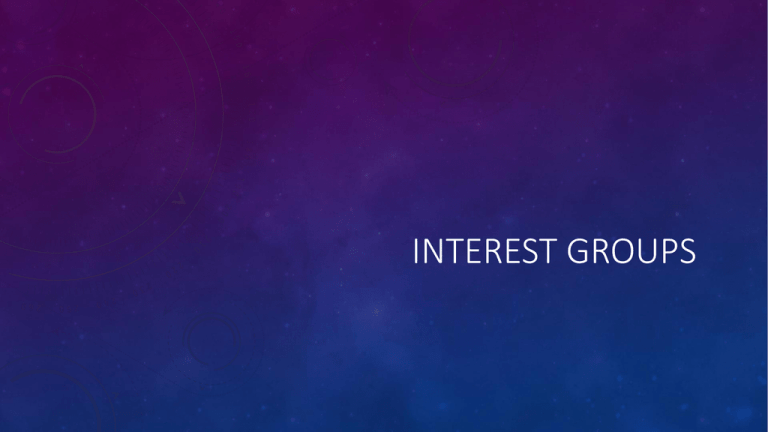
INTEREST GROUPS TYPES OF INTEREST GROUPS • Economic Groups • Business Groups (American Petroleum Institute, Chamber of Commerce) • Labor Groups (AFL-CIO, UFCWI) • Ag Groups (The Grange, the Farm Bureau) • Professional Associations (American Medical Association, National Educational Association) • Noneconomic Groups • Public Interest Groups (Greenpeace, Democracy 21) • Single-Issue Groups (National Rifle Association, Operation Rescue, MADD) • Ideological Groups (Christian Coalition, Family Research Council, NAACP) • Government Groups (city/state/foreign) HOW INTEREST GROUPS WORK • Methods • Lobby government • Engage in Election Activities • Give money to candidates, grassroots campaigning • Education • Mobilizing public ROLES OF IGS - THEORIES • Pluralism – Many competing interest groups that balance each other out, allows for opposing viewpoints. Power distributed equally. • Hyperpluralism – too many groups, weaken government, govt collapse • Elitist – The wealthy groups run society, interest groups fall to the wayside and are not relevant. • State autonomy – Government is most important, due to control of military • Marxist – property owners dominate society, capitalist progression because of exploitation of the working class. (5 stages of development) THE IRON TRIANGLE & ISSUE NETWORKS BENEFITS OF JOINING AN INTEREST GROUP • Solidary Incentive • Expressive Incentive • Selective Material Benefits THE REVOLVING DOOR • https://www.opensecrets.org/revolving/ ASTROTURFING • Making a sponsor to make it seem like it originates from grassroots

